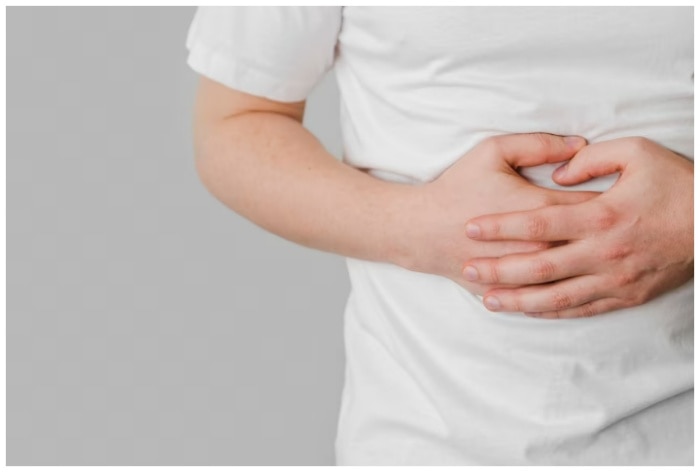Frequent stomach ache? It may also be a sign of stomach cancer. Expert reveal the difference between normal abdominal pain and stomach cancer symptom.
DOCTOR VERIFIED

Stomach cancer is the fifth most common cancer worldwide and the third leading cause of cancer deaths worldwide. Usually stomach cancer begins near the lining of the stomach. There are several symptoms of developing cancer and having proper information and awareness can help with timely intervention and proper treatment. Apart from bloating, stomach pain is a common sign. But how do we exactly between normal stomach ache and cancer pain?
To understand the difference, India.com got in touch with Dr. Subhash Agal Head of Gastroenterology, Kokilaben Dhirubhai Ambani Hospital, Mumbai. He explained the risk factors and the difference.
Stomach Cancer Symptoms
Risk factors include diet (smoked, pickled and processed foods), Helicobacter pylori infection, obesity, smoking, alcohol consumption and family history of stomach cancer. Helicobacter pylori bacteria also cause non-cancerous stomach ulcers. Early symptoms of stomach cancer include heartburn, bloating, upper abdominal pain, nausea, belching and loss of appetite. There is a great degree of overlap of symptoms between dyspepsia and stomach cancer.
There is no single specific symptom of stomach cancer. Therefore if one has symptoms and also has risk factors as mentioned above, it’s better to clarify the diagnosis with the help of endoscopy. Late symptoms include weight loss, pallor, and jaundice, vomiting of blood, difficulty in swallowing and black stools. The latter symptoms generally point towards the possibility of stomach cancer and should not be taken lightly. One should consult a Gastroenterologist even in the presence of early symptoms as described above because early diagnosis is the key to curative treatment.
How to Differentiate Between Normal Stomach Ache and Signs of Stomach Cancer?
Distinguishing between a normal stomach ache and potential signs of stomach cancer relies on a few key differences. A regular stomach ache often arises from temporary triggers like indigestion, typically resolves within a short period, and isn’t persistent. On the other hand, signs of stomach cancer include persistent and worsening pain, unexplained weight loss, persistent nausea or vomiting (especially if there’s blood), loss of appetite, difficulty in swallowing, and the presence of blood in vomit or stools. These symptoms, especially when they persist or intensify, should prompt a consultation with a healthcare professional for a proper evaluation and diagnosis. While concerning, these symptoms don’t always signify cancer, as various conditions can manifest similarly. Consulting a doctor is essential for accurate assessment and guidance.
Ways to Lower Risk of Stomach Cancer
Lowering the risk of stomach cancer involves maintaining a balanced diet rich in fruits, vegetables, and whole grains while limiting processed foods, avoiding tobacco and excessive alcohol, practising proper food hygiene, maintaining a healthy weight through regular exercise, addressing H. pylori infections promptly, and discussing any persistent symptoms or family history of stomach cancer with healthcare providers for tailored guidance and screenings.
Stomach cancer treatment includes surgery, chemotherapy, radiotherapy, targeted therapy, immunotherapy, combined modalities and palliative care (if the disease is widespread in the body and the patient has poor general health). Local disease (cancer within the stomach) can be managed with surgery. The Spread of cancer to other organs called metastatic disease can be managed with chemotherapy or radiotherapy. In some cases, chemotherapy before surgery is required to reduce the burden of disease. By staying informed about the causes, advancements in treatment, and taking preventive measures, we can work together to reduce the burden of this disease in the community.

